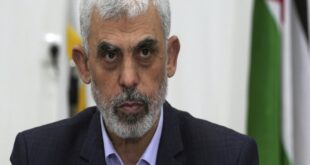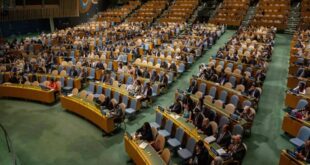
Leading presidents and prime ministers from around the world are meeting for the annual G20 leaders’ summit in India’s capital, Delhi, from 9-10 September.
Narendra Modi is an authoritarian figure who, as India’s prime minister since 2014, has pushed his country into increasingly becoming a “de facto ethnic democracy”, in which Hindus define the national identity and non-Hindus are seen as second-class citizens. Yet as the host of the upcoming talks of the world’s 20 largest economies, Mr Modi will be feted by major global leaders – except his absent fellow strongmen Xi Jinping and Vladimir Putin.
Mr Modi’s dangerous majoritarianism is too easily overlooked by the west, as the G20 glad-handing will show. India had been considered an exemplary liberal parliamentary democracy among developing countries. This is being slowly dismantled by Mr Modi’s brand of Hindu nationalism. State intimidation has seen civil society harassed and critics jailed. A report by a group of prominent lawyers last year warned that “the administration of law has become the means by which … the Muslim community can be kept in a state of perpetual fear”. Since May, the north-eastern Indian state of Manipur has been burning, with its valley Hindus and highland Christians sinking into bloody fighting. Mr Modi’s party blames non-Hindus for the violence.
The Indian prime minister shares the ideological viewpoint of Donald Trump, Marine Le Pen in France and Hungary’s Viktor Orbán. Mr Modi claims India suffered 1,000 years of servitude: 750 years of Muslim rule, plus 250 years of British rule. Pulling down, or discarding, symbols of that history – mosques, mausoleums, Lutyens’ Delhi buildings – is excused, in this thinking, because this represents a national, Hindu resurgence. Mr Modi tellingly speaks of 1,000 years of rule to come.
The west thinks that it must keep stumm because it needs India to contain China. But at what cost to democracy and human rights? Mukul Kesavan, an Indian historian, wrote earlier this year that when the White House rolled out the red carpet for Mr Modi, “One of the more entertaining things about [his] visit has been the sight of [Joe] Biden welcoming a foreign leader who had openly campaigned for his predecessor and liberal bête noire, Donald Trump.”
Last year, Gothenburg University’s annual report on the state of global democracy warned of a wave of “autocratization” spreading around the world. Since 2020, the report said, India has not been a working democracy but an “electoral autocracy” similar to that in Russia. All is not lost. India’s next general election will provide a chance for the public to have its say – though how much remains to be seen, given that a peer-reviewed paper suggested that in 2019 Mr Modi won around 11 seats by suppressing the Muslim vote. Its author, a respected economist, quit after his university failed to back him. The arrival of the opposition Indian National Developmental Inclusive Alliance, otherwise known as INDIA, has also unsettled Mr Modi. Perhaps peeved at being opposed by “INDIA”, Mr Modi wants to respond only to the country’s Sanskrit name “Bharat”.
India’s prime minister says the G20 should let the global south shape the world’s future. As Human Rights Watch pointed out this week, “many proposed summit topics – debt crises, social protection programs, food security, climate change, internet freedom – are at their root about human rights”. Britain has its own share of democratic backsliding. But if Mr Modi desires successful outcomes then he, like all autocratic leaders, should understand why his actions at home undermine the arguments he wants to promote abroad.
Western democracies are wrong to overlook a country’s descent into electoral autocracy because they believe they need it to contain China
What is the G20?
The G20 – or Group of Twenty – is a club of countries which meets to discuss plans for the global economy.
Between them, G20 countries account for 85% of the world’s economic output and 75% of world trade. They contain two-thirds of the global population.
The members are the European Union and 19 nations – Argentina, Australia, Brazil, Canada, China, France, Germany, India, Indonesia, Italy, Japan, Mexico, Russia, Saudi Arabia, South Africa, South Korea, Turkey, the UK and the US. Spain is always invited as a guest.
A smaller group of G20 member countries meets as the G7.
Some of the G20 member nations – Brazil, Russia, India, China and South Africa – have formed a separate group called Brics.
This is due to expand, having invited six other nations to join at its recent summit: Argentina, Egypt, Iran, Ethiopia, Saudi Arabia and the United Arab Emirates.
What does the group discuss?
The issues discussed by G20 leaders have broadened in recent years from just economics to include issues such as climate change, sustainable energy, international-debt forgiveness and taxing multinational corporations.
Every year, a different G20 member state takes over the presidency and sets the agenda for meetings.
Indonesia held the presidency in 2022, and the leaders’ summit was held in Bali.
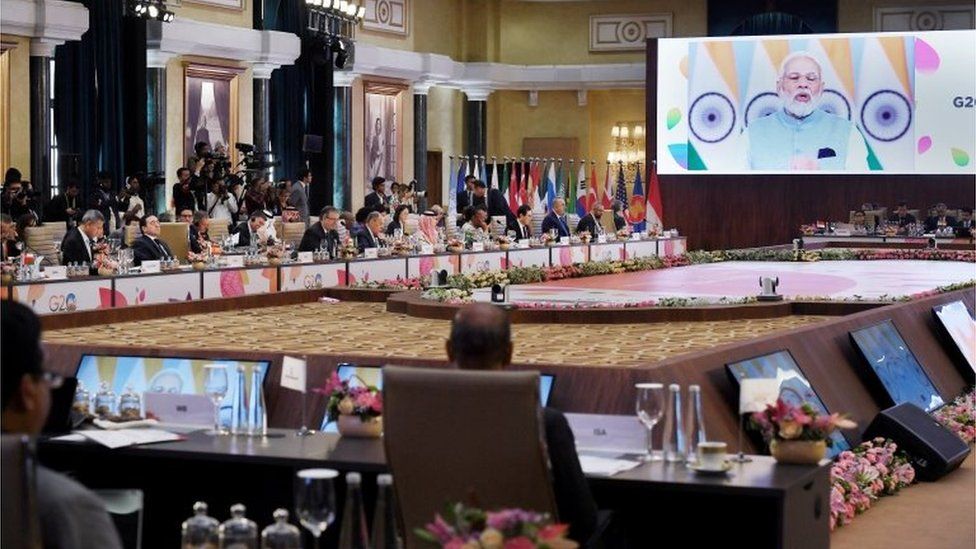
As 2023 president, India wants the Delhi event to concentrate on sustainable development, as well as measures to spread economic growth more evenly between developed and developing countries.
The summit also provides an opportunity for one-to-one discussions to take place alongside group sessions.
The White House says that US President Joe Biden will talk to individual leaders about tackling climate change, Russia’s war in Ukraine, and getting global organisations such as the World Bank to do more to fight poverty.
However, the Kremlin says Russia’s President Vladimir Putin will not be attending the summit, and it’s been widely reported that China’s President Xi Jinping will also stay away.
Are there any controversial issues for G20 countries?
Russia’s war in Ukraine is likely to cause discord at the Delhi summit.
In March 2022, the G20 foreign ministers were unable to reach agreements at their meeting because of fierce arguments over the war between the US and Russia delegations.
At the Bali leaders’ summit in November 2022, discussions were dominated by a crisis involving missiles from the war falling on Poland’s side of the border with Ukraine.
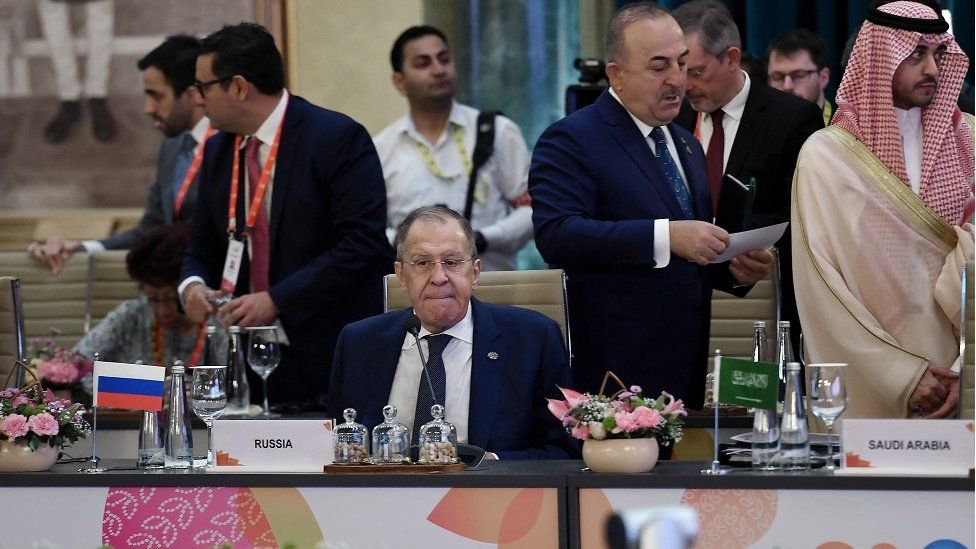
In May, China and Saudi Arabia boycotted a G20 meeting on tourism which was held in Indian-administered Kashmir because the Kashmir region contains territory claimed by Pakistan as well as India.
A row has also broken out between India and China over a long-running border dispute, after Beijing released a map which claims the state of Arunachal Pradesh and the Aksai Chin plateau as Chinese territory.
What does the summit mean for India?
India has been positioning itself as a leading voice of developing countries known as the Global South in recent years and G20 is seen as its chance to deliver on these promises on a bigger stage.
The summit also comes ahead of the 2024 general elections in India and could bolster Mr Modi’s image as a leader who commands respect on the global stage.
The government has held hundreds of meeting across some 50 cities in the run-up to the summit in Delhi.
For months, cities and towns have been dotted with shiny billboards featuring the G20 logo and Mr Modi’s photos, framing the event as the prime minister’s earnest attempt to bring the world to India.
Mr Modi also appears to share a personal rapport with many of his G20 counterparts, including President Biden who accorded him a coveted state visit in June.
That said, the summit is not expected to be a breeze for India, given the current complex geopolitical situation.
Many economies are still struggling to recover from the pandemic and have grown increasingly anxious about the war and its economic impact, with global surges in food and energy prices.
Why is there a ‘family photo’?
At the end of key summits, the heads of government often pose for a group photograph, known as the « family photo ».
However, the diplomatic discord revealed by the image sometimes makes headlines in its own right.
In 2018, following the killing of journalist Jamal Khashoggi at the Saudi consulate in Istanbul, Crown Prince Mohammed bin Salman was largely ignored, and made to stand at the far end of the group.
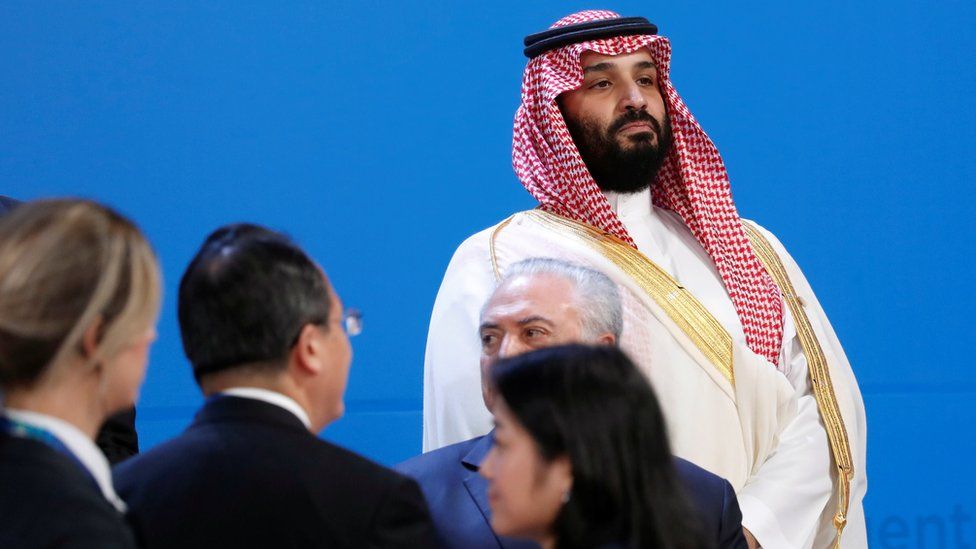
What has the G20 achieved?
At the 2008 and 2009 leaders’ summits, during the financial crisis, leaders agreed a host of measures to rescue the global economic system.
But some critics argue that subsequent summits have been less successful, often as a result of tensions between rival world powers.
However, bilateral meetings at the summit have often proved constructive.
In 2019, at Osaka, then-US president Donald Trump and Chinese President Xi Jinping agreed to resume talks to settle a major trade dispute.
Do G20 summits attract protests?
Big demonstrations often take place around the leaders’ summits.
Anti-capitalist protesters demonstrated at the 2010 summit in Toronto and the 2017 summit in Hamburg.
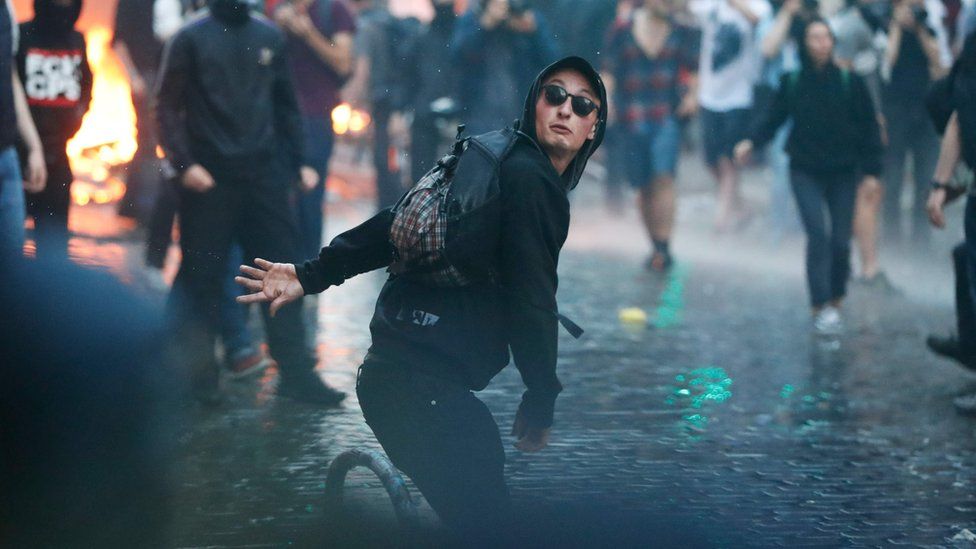
Thousands of demonstrators marched during the 2018 summit in Rio de Janeiro to protest against the G20’s economic policies.
In 2009 Ian Tomlinson, a newspaper seller, died after he was caught up in protests during the G20 summit in London.

World Opinions +The Guarasidian + BBC NEWS + Agencies




 World Opinions Débats De Société, Questions, Opinions et Tribunes.. La Voix Des Sans-Voix | Alternative Média
World Opinions Débats De Société, Questions, Opinions et Tribunes.. La Voix Des Sans-Voix | Alternative Média

